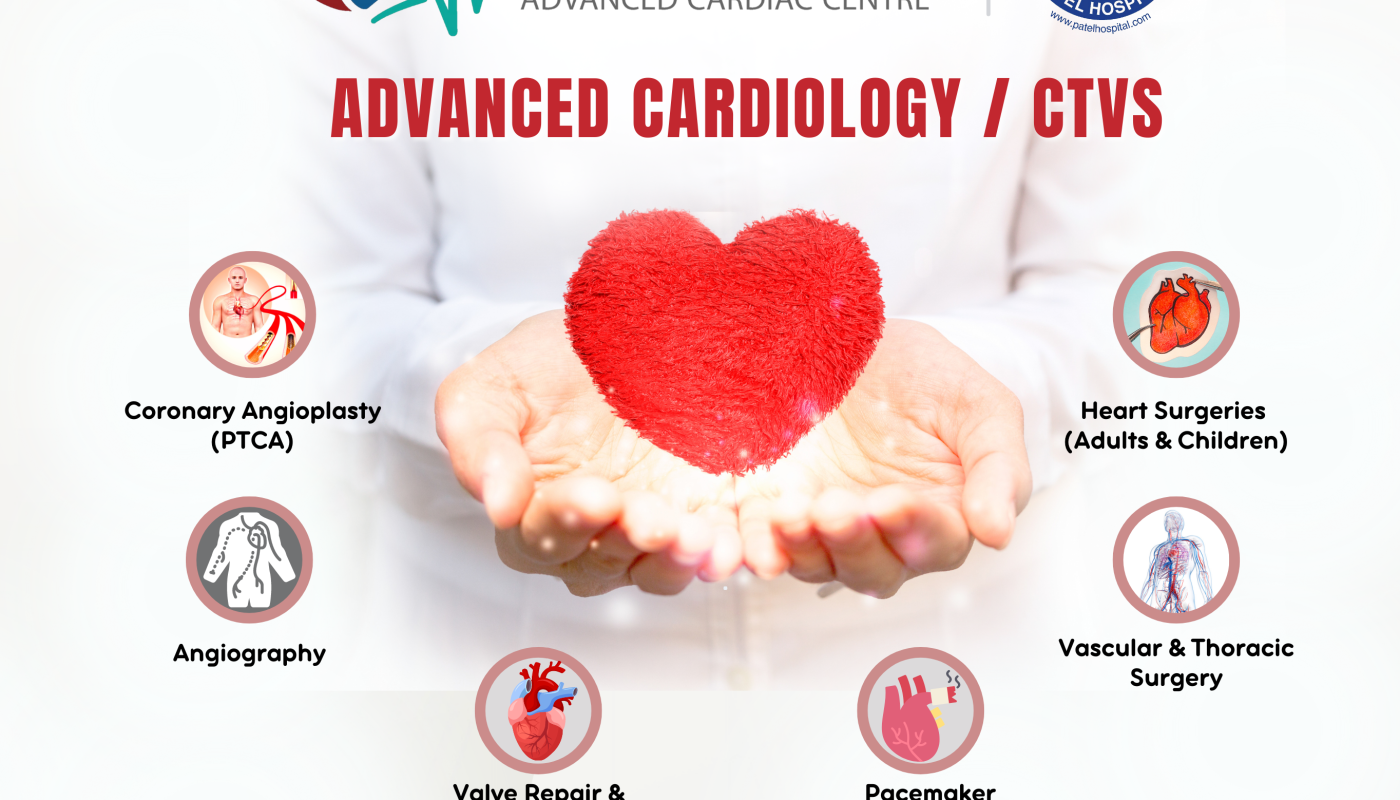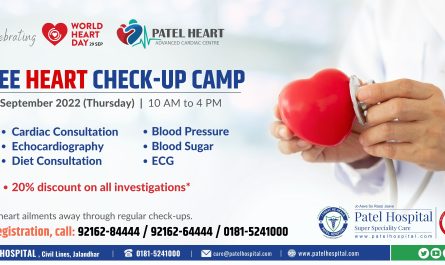Dr. Naveen Khanna, MD(Medicine), DM(Cardiology) AIIMS
Consultant Cardiologist, Patel Hospital, Jalandhar
HOW TO KEEP YOUR HEART HEALTHY
CHD – Coronary heart disease is now the leading cause of death worldwide; it is on the rise & has become a true pandemic that respects no borders. The prevalence & mortality due to Coronary heart disease is declining in developed nations but there has been an alarming increase over the past two decades in India & other South Asian countries. In India, there is a fourfold rise in Coronary heart disease prevalence during the last 40 years. Currently, the prevalence of CHD in our country is between 7% – 13% in urban & between 2% & 7% in rural populations.
During the last 40 years, results from observational & intervention studies have clearly shown that Coronary heart disease is partially preventable.
Risk factors you cannot control
It’s important to be aware of risk factors you can’t control, because you may be able to monitor their effects.
- Age. Your risk of heart disease increases as you get older. Men age 45 and older and women age 55 and older have a greater risk.
- Gender. Some risk factors may affect heart disease risk differently in women than in men. For example, estrogen provides women some protection against heart disease, but diabetes raises the risk of heart disease more in women than in men.
- Family history. You have a greater risk if you have a close family member who had heart disease at an early age.
What can I do to lower my risk of heart disease?
It is because of these risk factors that Chronic Heart Disease is considered to be partially preventable:
Keep your cholesterol and triglyceride levels under control:-High levels of cholesterol can clog your arteries and raise your risk of coronary artery disease and heart attack. Lifestyle changes and medicines (if needed) can lower your cholesterol. Triglycerides are another type of fat in the blood. High levels of triglycerides may also raise the risk of coronary artery disease, especially in women.
Control your raised blood pressure. High blood pressure is a major risk factor for heart disease. It is important to get your blood pressure checked regularly – at least once a year for most adults, and more often if you have high blood pressure. Take steps, including lifestyle changes, to prevent or control high blood pressure.
Manage diabetes. In 2020, according to the International Diabetes Federation (IDF), 463 million people have diabetes in the world & 77 million belong to India. India is the second most affected in the world after China. Having diabetes doubles your risk of diabetic heart disease. That is because, over time, high blood sugar from diabetes can damage your blood vessels and the nerves that control your heart and blood vessels. So, it is important to get tested for diabetes, and if you have it, keep it under control.
Stay at a healthy weight. Being overweight or obese increases your risk of Chronic Heart disease. Carrying too much weight is often associated with high blood pressure or diabetes. It is directly related to poor diet and physical activity habits. Reducing sugar, fat (especially saturated), alcohol & reducing portion size (quantity of food), and being more physically active will help reduce weight.
“Burn calories more than you consume”.
Eat a healthy diet. Try to limit saturated fats, foods high in sodium, and added sugars. Eat plenty of fresh fruit, vegetables, and whole grains. The DASH diet is an example of an eating plan that can help you to lower your blood pressure and cholesterol, two things that can lower your risk of heart disease.
Regular exercise. It helps reduce blood pressure, blood cholesterol, blood sugar, and also obesity (reduce waist circumference) all of which bring down the risk of Chronic Heart Disease. Daily exercise of 40 minutes like walking, jogging, swimming, dancing, cycling, or playing outdoor games for at least 5 days a week is recommended. Start slowly & you can gradually build upon your exercise.
Limit alcohol. Excess alcohol consumption directly damages the heart muscles and causes irregular heartbeats. Excess alcohol adds empty calories leading to raised triglycerides, high blood pressure, weight gain, stroke, liver damage & cancer. Men should not drink more than 24 units in a week & women more than 18 units.
Don’t smoke. “Smoking is injurious to health”. We all know this. Cigarette smoking, even a few per day, increases the risk of a heart attack.
It causes cancer anywhere in the body & is responsible for 90 % of lung cancers. It causes bronchitis and emphysema. If you do smoke, quitting will lower your risk of heart disease.
Manage stress. It is a silent killer. It increases blood pressure & exacerbates symptoms in people with pre-existing heart disease. It can lead to neglect of a healthy lifestyle & lack of sleep. One has to take out time to relax. A good sleep of 7-8 hours per day is a must. Some ways to help manage your stress include exercise, listening to music, focusing on something calm or peaceful, and meditating.



